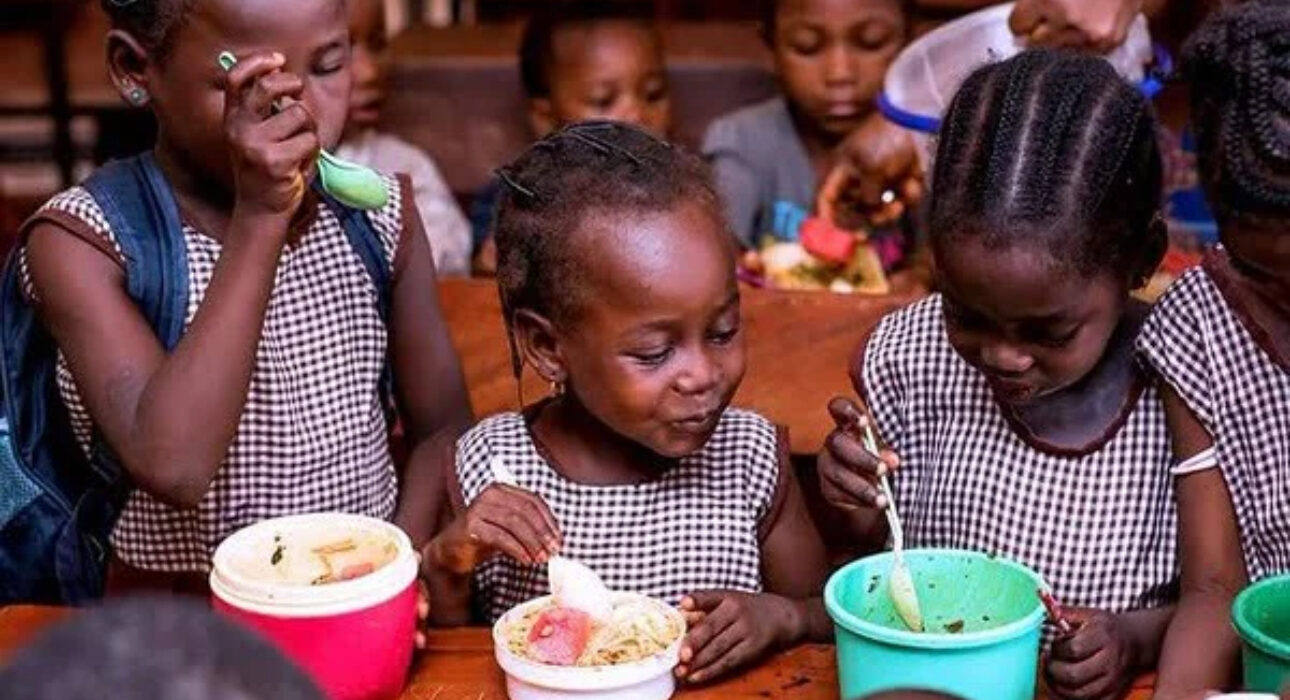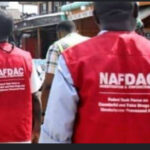FG Targets 10 Million Children in May 29 Renewed Hope School Feeding Programme Relaunch

The Federal Government has announced plans to relaunch the Renewed Hope National Home-Grown School Feeding Programme (RH-NHGSFP) on May 29, 2025, to coincide with President Bola Ahmed Tinubu’s second anniversary in office.
The initiative aims to provide one nutritious meal daily to at least 10 million public primary school pupils, while simultaneously boosting local agricultural production by sourcing food items from Nigerian farmers and small businesses.
The Minister of State for Humanitarian Affairs and Poverty Reduction, Dr. Yusuf Sununu, who disclosed this at a press briefing, emphasized that the program forms a key part of the administration’s commitment to fighting hunger, improving school enrollment, and supporting rural economic development.
“This programme is not just about feeding children. It’s about investing in the nation’s future. By reducing hunger and improving access to education, we are giving children the opportunity to learn, grow, and thrive,” Dr. Sununu stated.
According to government estimates, ₦1 trillion (approximately $1.2 billion USD) will be required annually to effectively sustain the program nationwide. This projection underscores the ambitious scale of the initiative and its potential impact on millions of families across the country.
The school feeding program, which originally launched during the Buhari administration, faced significant setbacks in the past, including allegations of corruption, poor implementation, and lack of transparency. Despite these issues, the Tinubu-led government has expressed determination to revamp and strengthen oversight mechanisms to ensure better execution this time around.
Dr. Sununu noted that the relaunch is also aimed at reducing Nigeria’s high rate of out-of-school children, with a goal to bring down the number by 30% by 2026.
Beyond its educational benefits, the RH-NHGSFP is designed to create a ripple effect throughout the economy. By sourcing food items locally, the program will provide consistent income for smallholder farmers, food vendors, transporters, and local suppliers, thus supporting micro, small, and medium enterprises (MSMEs) in rural areas.
“This program will stimulate rural economies and provide thousands of jobs across value chains,” said a spokesperson for the Ministry.
While some sources have referenced past claims of spending nearly $100 million on school feeding efforts, no official statement confirms a new $100 billion allocation to the initiative as of now. The focus remains on the ₦1 trillion annual budget projection and building a sustainable framework for long-term success.
The RH-NHGSFP aligns with global efforts to address child malnutrition and educational inequality. Nigeria has pledged its commitment as part of a broader international push to double school meal coverage for children in the most vulnerable regions by 2030.
As the relaunch date approaches, the government has pledged to maintain transparency and accountability, with regular updates expected from the Ministry of Humanitarian Affairs and its implementing partners.








